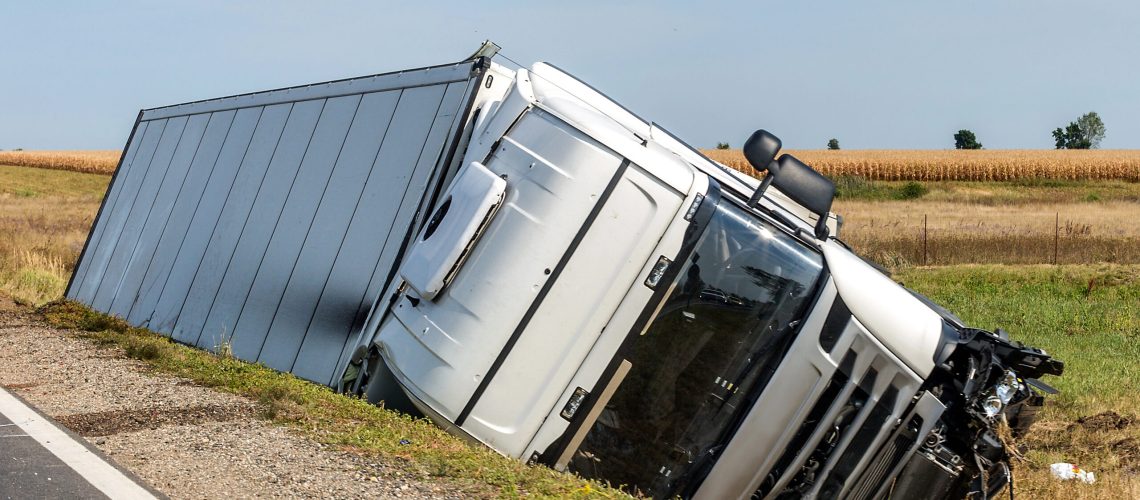When a massive commercial truck collides with a passenger vehicle, the aftermath is unlike any other type of accident. These aren’t just “bigger car accidents” – they’re complex legal cases involving federal regulations, multiple liable parties, and devastating consequences that can change lives forever. Medical bills pile up, work becomes impossible, and the future feels uncertain. But you don’t have to face this alone.
Understanding what makes truck accidents unique is crucial for protecting your rights and securing fair compensation. With recent changes to California’s trucking regulations in 2025 and evolving federal safety standards, the legal landscape has become even more complex.
At VIP Injury Attorneys, we stand in your corner every step of the way. This guide will help you understand the unique challenges of truck accident cases and why specialized legal representation is essential for achieving justice.
For immediate steps to take after any accident, read our comprehensive post-accident guide. For information about California’s new insurance requirements that took effect in 2025, see our detailed coverage analysis.
California's Truck Accident Crisis: The Numbers Tell the Story
California’s highways are among the most dangerous in the nation for truck accidents. In 2023 alone, California experienced 5,782 commercial truck crashes involving delivery trucks, tractor-trailers, and buses. These incidents resulted in over 4,800 injuries and 321 fatalities, making specialized legal representation more critical than ever.
The scope of truck accidents in California extends far beyond simple collisions. Due to the massive size and weight differential – commercial trucks can weigh up to 80,000 pounds when fully loaded compared to the average passenger car’s 3,000 pounds – these accidents often result in catastrophic injuries, extensive property damage, and complex legal proceedings involving multiple parties and insurance policies.
What makes these statistics particularly sobering is that they represent a significant increase from previous years, driven by factors including increased e-commerce deliveries, driver shortages leading to longer hours, and aging infrastructure struggling to handle heavy commercial traffic.
These aren't just 'bigger car accidents' – they're complex legal cases involving federal regulations, multiple liable parties, and devastating consequences that can change lives forever.
What Makes Truck Accidents Fundamentally Different
Complex Federal and State Regulations
Commercial trucking operates under a web of federal and state regulations that don’t apply to regular drivers. The Federal Motor Carrier Safety Administration (FMCSA) sets national standards covering everything from driver qualifications to vehicle maintenance, while California has additional requirements that can affect liability.
Recent 2025 changes to California’s trucking laws have added new layers of complexity. The California Air Resources Board (CARB) now requires certain fleet owners to transition to zero-emission vehicles, with specific requirements for drayage trucks and high-priority fleets. Starting in 2025, CARB provides a ZEV Purchase Exemption List for vehicle configurations unavailable as zero-emission or near-zero emission vehicles.
These regulations create opportunities to prove negligence that don’t exist in regular car accidents. Violations of Hours of Service rules, improper vehicle maintenance, or failure to comply with new emissions standards can constitute evidence of negligence in your case.
Multiple Potentially Liable Parties
Unlike car accidents where you typically deal with one driver and one insurance company, truck accidents often involve multiple defendants:
- The Truck Driver may be liable for violations of traffic laws, Hours of Service regulations, or operating under the influence. However, many truck drivers are employees or independent contractors, which affects how liability is determined.
- The Trucking Company can be held liable under vicarious liability for their employee’s actions, or for direct negligence including improper hiring, inadequate training, or pressuring drivers to violate safety regulations.
- Vehicle Manufacturers may be liable if defective parts contributed to the accident. Common defects include brake system failures, tire defects, or electronic system malfunctions.
- Cargo Loading Companies can bear responsibility if improperly loaded or secured cargo contributes to an accident. Federal regulations specify how different types of cargo must be secured.
- Maintenance Providers may be liable if improper repairs or maintenance contributed to the crash. Many trucking companies outsource vehicle maintenance to third-party providers.
Specialized Evidence and Investigation Requirements
Truck accidents require immediate preservation of evidence that doesn’t exist in car accidents:
- Electronic Logging Devices (ELDs) track driver hours and vehicle data, but this information can be overwritten if not preserved quickly. These devices reveal Hours of Service violations and driving patterns before the crash.
- Maintenance Records must be obtained before they’re destroyed. Trucking companies are only required to maintain certain records for limited periods, making prompt legal action essential.
- Driver Qualification Files contain information about the driver’s training, medical certification, and safety record. These files can reveal whether the trucking company properly vetted the driver.
- Cargo Documentation shows what the truck was carrying, how it was loaded, and whether weight limits were exceeded. Improperly secured or overweight loads contribute to many truck accidents.
Common Types of Truck Accidents and Their Unique Causes
- Jackknife Accidents: When a truck’s trailer swings out to form a 90-degree angle with the cab, often caused by sudden braking, poor road conditions, or improper braking techniques. These accidents can involve multiple vehicles as the trailer sweeps across traffic lanes.
- Rollover Accidents: Trucks have high centers of gravity that make them prone to rollovers, especially when taking curves too fast, during sudden maneuvers, or when cargo shifts improperly. Driver fatigue and mechanical failures also contribute to rollovers.
- Underride Accidents: When passenger vehicles slide under truck trailers, often resulting in catastrophic injuries or fatalities. These accidents highlight the importance of proper truck maintenance and trailer equipment.
- Wide Turn Accidents: Large trucks require wide turns that can catch passenger vehicles in blind spots. These accidents often occur when trucks turn right and don’t see vehicles alongside them.
- Rear-End Collisions: Due to their massive weight, trucks require much longer stopping distances than passenger cars. Tailgating, brake failures, or distracted driving can cause devastating rear-end crashes.
- Cargo-Related Accidents: Shifting, falling, or spilled cargo can cause accidents directly or create road hazards for other drivers. Federal regulations specify how different cargo types must be secured, and violations often contribute to these accidents.
Driver-Related Factors Unique to Commercial Trucking
Hours of Service Violations
Federal Hours of Service (HOS) regulations limit commercial drivers to 11 hours of driving after 10 consecutive hours off duty. However, pressure from employers and financial incentives often lead drivers to violate these crucial safety rules.
Electronic Logging Devices now make it easier to identify HOS violations, but drivers and companies sometimes find ways to circumvent these systems. Driver fatigue remains one of the leading causes of truck accidents nationwide.
Commercial Driver License Requirements
Truck drivers must meet higher standards than regular motorists, including specialized training, medical certification, and regular drug testing. When trucking companies fail to properly screen drivers or allow unqualified drivers to operate commercial vehicles, they can be held liable for resulting accidents.
Unique Driving Challenges
Commercial truck drivers face challenges that don’t apply to car drivers, including massive blind spots, longer stopping distances, and the physics of operating vehicles up to 80,000 pounds. When drivers fail to account for these factors, accidents often result.
The Commercial Insurance Complexity
Truck accidents involve commercial insurance policies that are fundamentally different from personal auto insurance:
Higher Coverage Limits
Commercial trucking companies must carry minimum insurance coverage of $750,000 for most trucks, with higher requirements for trucks carrying hazardous materials. This higher coverage means more resources are available to compensate victims, but it also means insurance companies fight harder to minimize payouts.
Multiple Insurance Policies
A single truck accident may involve several insurance policies covering the truck, trailer, cargo, and different parties. Understanding which policies apply and their coverage limits requires specialized expertise.
Sophisticated Defense Teams
Commercial trucking companies and their insurers retain experienced legal teams that begin investigating accidents immediately. These defense teams often arrive at accident scenes before victims have even been transported to hospitals, working to minimize their clients’ liability from day one.
Why California's 2025 Regulatory Changes Matter for Your Case
New Emissions and Safety Standards
California has implemented stricter emissions standards and safety requirements for commercial trucks in 2025, with new automatic emergency braking (AEB) requirements for Class 3 and larger vehicles being implemented. If a trucking company failed to maintain required safety equipment or violated new emissions standards, this could constitute evidence of negligence.
Enhanced Reporting Requirements
Starting January 1, 2025, large fleet owners (public and private) must start reporting fleet data and developing plans for zero-emission vehicle (ZEV) transition. These enhanced reporting requirements create more documentation that can be used as evidence in accident cases.
Updated Insurance Requirements
California’s minimum insurance requirements doubled in January 2025, though commercial trucks already carried much higher limits. However, these changes affect how Uninsured/Underinsured Motorist coverage works, which can impact your recovery if the truck’s insurance proves insufficient.
Investigation Challenges Unique to Truck Accidents
Federal vs. State Jurisdiction Issues
Commercial trucking involves both federal and state regulations, creating complex jurisdictional issues that don’t exist in regular car accidents. Understanding which laws apply and how they interact requires specialized knowledge.
Commercial trucking companies retain experienced legal teams that begin investigating accidents immediately. These defense teams often arrive at accident scenes before victims have even been transported to hospitals, working to minimize their clients' liability from day one.
Rapid Evidence Destruction
Trucking companies have strong incentives to minimize evidence of negligence. Maintenance records, driver logs, and electronic data can be destroyed or overwritten quickly if not preserved through proper legal channels.
Corporate Shell Games
Many trucking operations involve complex corporate structures designed to limit liability. Identifying all potentially liable parties and their assets requires thorough investigation and legal expertise.
The Specialized Medical Challenges
Injury Severity and Complexity
Truck accidents typically result in more severe injuries than car accidents due to the massive force involved. These often include traumatic brain injuries, spinal cord damage, multiple fractures, and internal injuries requiring extensive medical care.
Long-Term Care Needs
The severity of truck accident injuries often requires lifetime medical care, rehabilitation, and adaptive equipment. Calculating these future costs requires working with medical experts who understand the long-term prognosis for catastrophic injuries.
Specialized Treatment Requirements
Victims of truck accidents often need specialized medical care that isn’t typically required for car accident injuries. This might include neurosurgery, spinal surgery, or treatment at specialized trauma centers.
Why You Need Truck Accident Specialists
Regulatory Expertise
Truck accident cases require attorneys who understand the complex web of federal and state regulations governing commercial trucking. Violations of these regulations can provide crucial evidence of negligence, but identifying relevant violations requires specialized knowledge.
Investigation Resources
Truck accident cases require immediate action to preserve evidence and conduct thorough investigations. This includes working with accident reconstruction experts, mechanical engineers, and industry specialists who understand commercial trucking operations.
Insurance Company Experience
Commercial trucking insurers use sophisticated tactics to minimize payouts, including disputing injury causation, arguing comparative fault, and claiming regulatory compliance. Attorneys who regularly handle truck accident cases understand these tactics and know how to counter them effectively.
Trial Experience
While many truck accident cases settle, having attorneys prepared to take cases to trial often results in better settlement offers. Commercial trucking companies and their insurers know which attorneys are willing and able to present compelling cases to juries.
The VIP Injury Attorneys Advantage
At VIP Injury Attorneys, we understand that truck accidents represent some of the most complex and devastating personal injury cases. Our approach embodies Victory, Integrity, and Passion:
Victory means we work tirelessly to secure maximum compensation for truck accident victims. We don’t accept lowball offers from commercial insurers, and we bet our fees on victory with our “No Win, No Fee” guarantee.
Integrity means we provide honest assessments of your case and realistic expectations about the legal process. We know truck accident cases can be challenging, and we prepare thoroughly to overcome the obstacles.
Passion drives us to hold negligent trucking companies accountable not just for your compensation, but to make roads safer for everyone. When we win truck accident cases, we send a message that cutting corners on safety has real consequences.
Our Truck Accident Investigation Process
We immediately mobilize to preserve crucial evidence including electronic logging device data, maintenance records, driver qualification files, and cargo documentation. Our team works with accident reconstruction experts and industry specialists to build the strongest possible case.
Dealing with Commercial Insurance Companies
We handle all communication with trucking company insurers and their legal teams. While you focus on recovery, we focus on building a compelling case that maximizes your compensation.
Comprehensive Damage Assessment
We work with medical experts, economists, and life care planners to ensure all current and future costs are included in your claim. This includes medical expenses, lost earning capacity, pain and suffering, and the full impact on your quality of life.
The complexity of truck accident cases, combined with the aggressive tactics of trucking companies and their insurers, makes specialized legal representation not just helpful – it's essential.
Don’t Face Corporate Giants Alone
Truck accidents involve corporate defendants with vast resources and experienced legal teams working to minimize their liability. These companies count on individual victims being overwhelmed by the complexity and accepting inadequate settlements.
When injury strikes, life can turn upside down. Medical bills pile up, work becomes impossible, and the future feels uncertain. The unique challenges of truck accident cases make experienced legal representation essential for protecting your rights and securing fair compensation.
Don’t face this alone. VIP Injury Attorneys stand in your corner, every step of the way. Let us help you fight for the treatment you need and the compensation you deserve. We offer a “No Win, No Fee” guarantee! So don’t settle for less than VIP treatment.
The complexity of truck accident cases, combined with the aggressive tactics of trucking companies and their insurers, makes specialized legal representation not just helpful – it’s essential. Contact us today and let us take the fight off your shoulders while you focus on healing and rebuilding your life.
Contact us today for a free consultation and let us take the fight off your shoulders. We’ll handle the legal battles while you focus on healing and rebuilding your life.
Related Resources:
Stay updated on important legal and safety information by subscribing to our newsletter or following us on Facebook, YouTube, Instagram, and TikTok.





